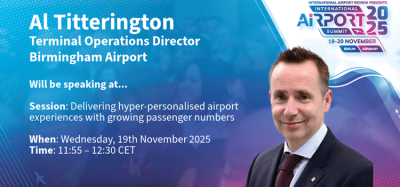Sydney Airport commits to net-zero carbon emissions by 2030
Posted: 24 May 2021 | International Airport Review | No comments yet
The commitment to achieve net-zero emissions by 2030 incorporates all emissions under Sydney Airport’s operational control, and the airport will also continue its programme to target indirect ‘Scope 3’ emissions.


Sydney Airport (SYD) has announced that it will achieve net-zero carbon emissions by 2030 and has outlined the practical initiatives and actions that will ensure that it meets this commitment.
Sydney Airport’s CEO, Geoff Culbert, said: “The aviation industry has a critical role to play in combatting climate change, and we are making this commitment with a clear line of sight to the outcome, and definite actions to get there.”
“Sydney Airport is proud of the leadership position that we’ve taken on sustainability. We’ve put our money where our mouth is through initiatives like our sustainability-linked loan and bond, which ensure that our sustainability commitments have genuine financial imperatives. We are always on the lookout for ways that we can do more, and our commitment to achieve net zero by 2030 extends our leadership on sustainability,” he added.
Join us live: Shaping the Next Generation of Hold Baggage and Air Cargo Screening
Join us live for an insightful webinar on 11th December at 14:00 GMT, in collaboration with Smiths Detection, as we explore the strategic balance of operational efficiency, regulatory compliance, and sustainability in high-volume security environments.
This session offers a focused look into future-proofing your security strategy.
Key learning points
- Cost Reduction: Strategies to minimize bag travel time while simultaneously reducing operational costs.
- Regulatory Roadmap: Insights into the next wave of regulatory changes and their impact on future investment decisions.
- Sustainable Systems: Practical approaches to building sustainability into security systems and lowering the total cost of ownership (TCO).
- Scalable Solutions: Real-world examples of scalable systems supporting current airport growth and preparing for tomorrow.
Register now for expert insights, case studies, and actionable strategies on operational efficiency!
Sydney Airport has a strong track record on incorporating sustainability into its operations. In recent years, the airport entered into a corporate power purchase agreement for renewable energy and developed market-leading financial instruments, like sustainability-linked bonds and loans.
The commitment to achieve net-zero by 2030 incorporates all emissions under Sydney Airport’s operational control. This comprises both ‘Scope 1’ emissions, which are generated by the airport’s vehicle fleet and natural gas use, and ‘Scope 2’ emissions, representing the emissions created during the production of the airport’s electricity needs.
The airport’s Scope 2 emissions, which represent 93 per cent of emissions under the airport’s operational control, will be eliminated by reducing electricity use and switching to 100 per cent renewable energy.
Scope 1 emissions account for seven per cent of the emissions under the airport’s operational control and will be reduced by moderating reliance on natural gas; transitioning vehicles to low or no-emission technology; and phasing out fuel-powered equipment, like diesel generators.
If there is a small, residual proportion of Scope 1 emissions that cannot be eliminated by alternative technologies or management practices, these can be offset by the purchase of credits from carbon removal projects; for example, reforestation programmes.
Sydney Airport will continue its programme to target indirect ‘Scope 3’ emissions, which represent those that are outside the airport’s operational control but occur as a result of the airport’s activities. These include the carbon emissions generated by ground transport to and from the airport and by aircraft taking off and landing.
Initiatives to reduce Scope 3 emissions will range from offering Sydney Airport’s retail and commercial tenants renewable energy to facilitate the uptake of sustainable aviation fuels (SAF). In October 2020, the airport acquired the on-site jet fuel infrastructure assets in an $85 million transaction driven partly by an ambition to influence the introduction of sustainable aviation fuels in the future.
Sydney Airport will also continue its programme of installing ground power units and pre-conditioned air, which allow parked aircraft to plug into electricity, removing the need to run aircraft engines to operate on-board lights, instruments and air-conditioning.
Sydney Airport’s Head of Sustainability, Alicia Burgmann, said: “Climate change is a global challenge that requires a collective response. The aviation industry is alive to the challenge and we are really proud to be playing our part.”
Join our free webinar: Revolutionising India’s travel experience through the Digi Yatra biometric programme.
Air travel is booming, and airports worldwide need to move passengers faster and more efficiently. Join the Digi Yatra Foundation and IDEMIA to discover how this groundbreaking initiative has already enabled over 60 million seamless domestic journeys using biometric identity management.
Date: 16 Dec | Time: 09:00 GMT
rEGISTER NOW TO SECURE YOUR SPOT
Can’t attend live? No worries – register to receive the recording post-event.
Related topics
Aircraft, Airside operations, Emissions, Ground handling, Machinery, Retail, Sustainability, Sustainable Aviation Fuel (SAF), Sustainable development, Terminal operations


















